What are the 05+ sample explanatory essays on a folk festival in Vietnam? What is the age of students entering 6th grade in Vietnam?
What are the 05+ sample explanatory essays on a folk festival in Vietnam?
Students can refer to the following sample explanatory essays on a folk festival in Vietnam:
Lim Festival
Among the treasure trove of traditional festivals of the Vietnamese people, the Lim Festival is considered one of the most unique festivals in the Kinh Bac region. It is not only an occasion to remember the ancestors who contributed to the homeland but also an opportunity for people and tourists to immerse themselves in the Quan ho cultural space - an intangible heritage of humanity.
The Lim Festival is closely associated with the worship of Duc Thanh Tran - Mr. Hieu Trung Hau, who contributed to teaching the Quan ho folk songs and helping the people build prosperous lives. The festival is held annually on January 12 and 13 of the lunar calendar in Tien Du district, Bac Ninh province. Not only does it carry spiritual significance, but it is also an occasion to honor and promote the values of Quan ho folk songs - a distinctive cultural feature of the Kinh Bac region.
The Lim Festival comprises two main parts: the ceremonial part and the festive part, each with its own distinct features. The ceremony begins with a procession ritual from Quan ho villages to the temple of Duc Thanh Tran. People don traditional long dresses, respectfully offer incense, and perform rituals to pray for peace, prosperity, good crops, and a wealthy life.
The festive part is the soul of the Lim Festival, attracting numerous tourists from everywhere. The male and female Quan ho singers don graceful four-panel traditional dresses and simple headscarves, performing sweet and enchanting Quan ho melodies. Tourists can enjoy Quan ho singing on boats, at communal courtyards, or right on the singing pavilions, where the lyrical and profound exchanges echo smoothly. Furthermore, the Lim Festival organizes many attractive folk games such as swinging, wrestling, tug of war, human chess, weaving contests, and cooking rice, creating a lively and cheerful atmosphere. Such games not only provide joy but also help the younger generation better understand the traditional culture of their homeland.
The Lim Festival is not only a spiritual activity but also a place to preserve and promote the values of Quan ho folk songs. From sweet courtship songs to the beauty in the dialogue of the male and female singers, everything reflects the sophistication of Vietnamese communication culture. Additionally, the Lim Festival contributes to preserving the national identity and enhancing the pride of the people in their intangible cultural heritage.
The Lim Festival is not only a source of pride for the people of Bac Ninh but also a beautiful symbol of Kinh Bac culture. Through the smooth Quan ho melodies, tourists not only immerse themselves in the traditional art space but also feel the charm and grace of the people here. Amidst the modern rhythm of life, the Lim Festival retains its pristine beauty, becoming a cultural rendezvous every spring, where the soul of the countryside and the Vietnamese people is preserved.
Giong Festival
The Giong Festival is regarded as a sacred symbol of patriotism and the spirit of resisting foreign invaders. Not only does it bear deep historical significance, but the festival also expresses solidarity, gratitude, and the resilient spirit of the people towards the legendary hero Saint Giong.
The Giong Festival is held annually on April 9 of the lunar calendar at Soc Temple, Soc Son district, Hanoi. It is the place of worship for Saint Giong - the hero in the legend who rode an iron horse, grew rapidly to defeat the An invaders. After the victory, he flew to heaven, leaving behind an eternal image in folklore of a valiant and loyal son of the Vietnamese land. As such, the festival is not only a spiritual activity but also a tribute to the immense merits of this immortal saint.
The Giong Festival has two main parts: the ceremonial part and the festive part. The ceremony kicks off with a solemn procession, incense offerings at Thuong Temple, Ha Temple, and Mau Temple, where Saint Giong and the deities who defended the country are worshipped.
The festival part is truly the highlight, drawing a large crowd of people and visitors. One of the most important activities is re-enacting the battle against the An invaders through the "war elephant," "iron horse" processions, and especially the "flag offering" scene, simulating soldiers going to battle. Participants transform into generals, soldiers, wielding bamboo sticks as weapons, creating a heroic and solemn atmosphere as if stepped out from history books. Furthermore, during the festival, many folk games such as wrestling, tug of war, human chess are held, embodying the spirit of physical and mental training of the ancient Vietnamese people.
A unique feature of the festival is the "offerings distribution" ritual – people scramble for bamboo branches carried in the procession, believing them to be lucky items that bring peace and prosperity in the new year. This has created an inimitable characteristic of the Giong Festival.
Not merely a religious activity, the Giong Festival is also a precious cultural heritage, recognized by UNESCO as a representative intangible cultural heritage of humanity. Through the festival, today's and future generations grow prouder of the heroic tradition of the nation, about the perseverance and patriotism deeply ingrained in each folk story, each sacred ritual.
The Giong Festival is not only a source of pride for the people of Soc Son but also a sacred symbol in the consciousness of the Vietnamese people. Amidst the flow of time, the festival remains core values, becoming a bridge connecting the past and present, stirring national spirit, cultivating pride, and reminding everyone of the responsibility to preserve and promote the cultural values left by ancestors.
Hung Temple Festival
Across the S-shaped land, many traditional festivals bear the historical and cultural imprints of the nation, but the Hung Temple Festival always holds a special place in the hearts of the Vietnamese people. It is not only an occasion to remember the merits of building the nation of the Hung Kings but also a testament to the sacred spirit of "drinking water, remember the source" of our nation.
The Hung Temple Festival is held annually on March 10 of the lunar calendar at the Hung Temple Historical Relic Area, Phu Tho province. According to legend, the Hung Kings were the first to establish the country of Van Lang - the primitive state of the Vietnamese nation. Therefore, for ages, the anniversary of Hung Kings' death is not just a festival but also a grand unity event for the whole people, expressing the deep gratitude of the descendants towards their ancestors.
The Hung Temple Festival consists of two parts: the ceremonial part and the festive part, each bearing its own meaning. The ceremonial part is organized very solemnly with the incense offering ritual at Thuong Temple, where the Hung Kings are worshipped on Nghia Linh Mountain. The procession includes elders, officials, and citizens in traditional attire, respectfully proceeding to the temple, carrying offerings including square sticky rice cakes and cylindrical sticky rice cakes – two types symbolizing heaven and earth, reflecting the profound yin-yang philosophy of the Vietnamese. The incense offering is not only a spiritual ritual but also a reminder for the next generation of the duty to remember their roots.
Following the ceremony is the festive part, featuring numerous lively cultural activities. The highlight is the Xoan singing performances, a traditional folk singing form of the ancestral land, recognized by UNESCO as an intangible cultural heritage of humanity. The simple songs, emanating from sweet voices, convey the soul of the nation, evoking the bygone days of our ancestors.
Moreover, the Hung Temple Festival organizes many folk games such as swinging, wrestling, tug of war, cockfighting, attracting numerous tourists to participate. Notably, the contest of wrapping and cooking square sticky rice cakes and cylindrical sticky rice cakes not only recreates the Lang Lieu legend but also demonstrates the dexterity and solidarity of the people.
Not only bearing spiritual significance, the Hung Temple Festival is also a sacred symbol of the great unity of the nation. Regardless of where they are, on March 10 of the lunar calendar, Vietnamese people worldwide turn towards the ancestral land, expressing pride in their origins and national traditions. For this reason, the Hung Kings' death anniversary is recognized as a national holiday, becoming an event for every Vietnamese person to cherish the cultural values painstakingly cultivated by the forebears.
The Hung Temple Festival is not merely a traditional ceremony but also a thread connecting the past with the present, helping each Vietnamese person become prouder of the nation's history of establishing and defending the country. Although time passes and life changes, the spirit of "drinking water, remember the source" remains everlasting, so that every festival season, the flow of people eagerly pilgrimages to the ancestral land, lighting incense sticks in solemn tribute to those who laid the foundation for today’s beautiful Vietnam.
See more sample explanatory essays on the Fisherman Festival, Perfume Pagoda Festival, and Yen Tu Festival download
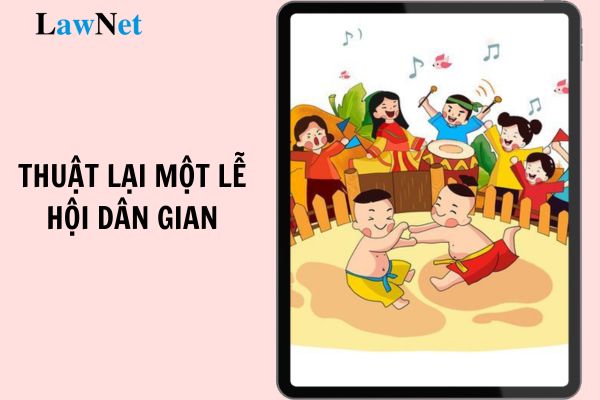
What are the 05+ sample explanatory essays on a folk festival in Vietnam? What is the age of students entering 6th grade in Vietnam? (Image from the Internet)
What is the age of students entering 6th grade in Vietnam?
Under Article 33 of the Charter of lower secondary schools, upper secondary schools, and multi-level schools issued together with Circular 32/2020/TT-BGDDT, the age of secondary school students is regulated as follows:
Secondary school age
1. Children shall start the sixth grade at the age of 11 and the tenth grade at the age of 15. For students skipping a grade or over-age students, the sixth grade and tenth grade starting ages shall be adjusted based on the age at which these students graduate from the previous education level.
....
Therefore, in normal cases, the age of students entering 6th grade in Vietnam is 11.
Except in cases such as students who skip a grade, ethnic minority students, disabled students, students with special difficulties, students returning from abroad, retained students, or students entering the educational level at an age higher than the prescribed age, the age of students entering 6th grade in Vietnam may be younger or older than 11.
What are the duties of 6th-grade students in Vietnam?
According to Article 34 of the Charter of lower secondary schools, upper secondary schools, and multi-level schools issued together with Circular 32/2020/TT-BGDDT, the duties of students are stipulated as follows:
- Learn and train according to curricula and education plans of their schools.
- Respect their parents, officials, teachers and staff of their schools, and those older than them; maintain solidarity and mutual support in learning and training; conform to the charter and rules of their schools; and abide by the law.
- Take exercises and maintain personal hygiene.
- Participate in group activities of their schools and classes, Ho Chi Minh Young Pioneer Organization and Ho Chi Minh Communist Youth Union; help their families, join physical and social activities and environmental protection activities, and maintain traffic order and safety.
- Protect school and public property; contribute to fostering, preservation and enhancement of school traditions.


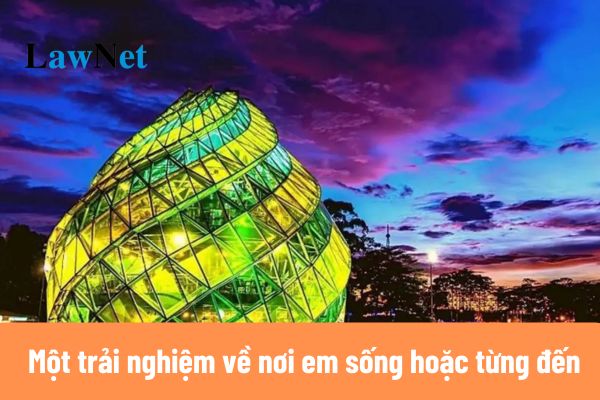
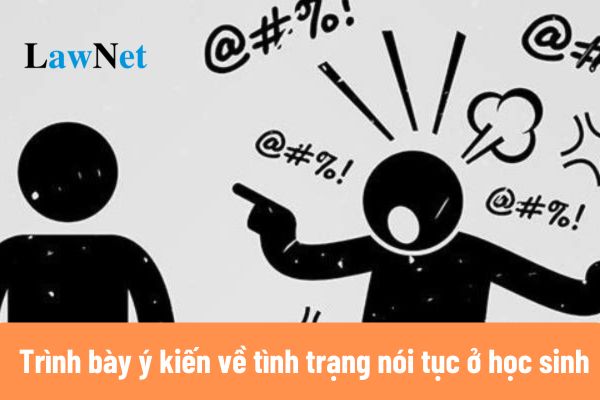
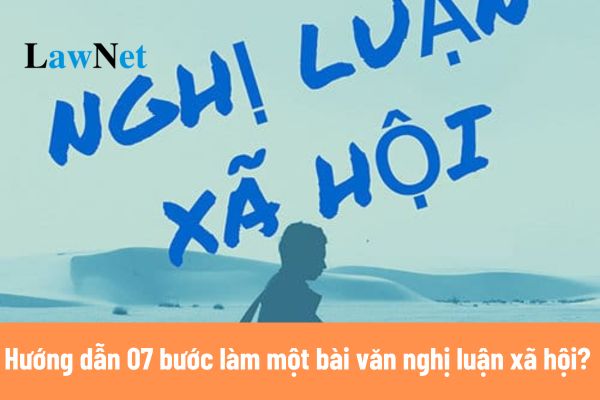
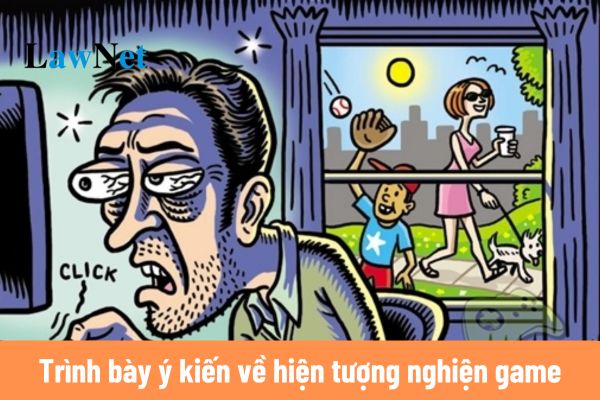
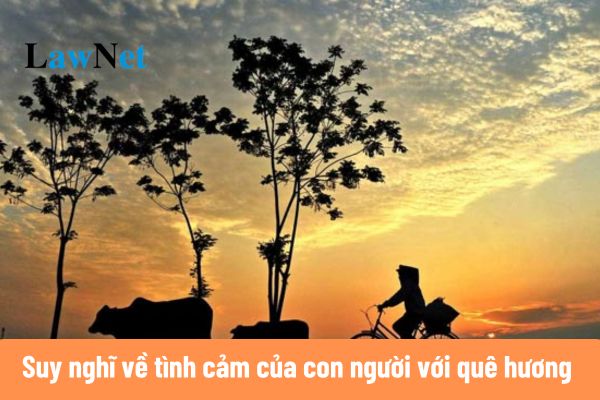


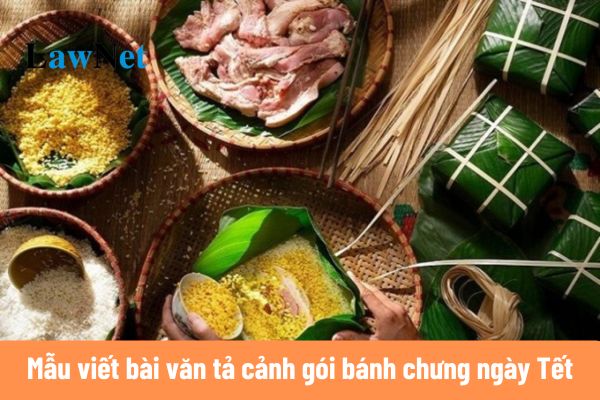
- Trade Union of the Education Sector Proposes Review and Cross-check of the 2% Trade Union Funding and Membership Fees for the Year 2024
- What are the penalties for stopping a vehicle to wear a raincoat in Vietnam under Decree 168? Which types of motorcycles can students in Vietnam operate?
- Vietnam: What are the 04+ sample argumentative essays on a life matter that you approve?
- What are the guidelines for preparing the lesson "Cuộc chạm trán trên đại dương" for 7th-grade students in Vietnam? What are the responsibilities of Literature teachers in assessing 7th-grade students in Vietnam?
- When does Circular 29 on extra classes in Vietnam come into force? What are the conditions for organizing external extra classes in Vietnam?
- What is the sample outline for an essay retelling the story "Sự tích cây thì là" for 5th-grade students in Vietnam? What types of essays must 5th-grade students in Vietnam be able to write?
- What are the sample descriptive essays on plants for 4th-grade students in Vietnam? What are the compulsory subjects for 4th-grade students in Vietnam?
- What are the 03+ sample letters to relatives for 4th-grade students in Vietnam? What are the required outcomes regarding writing practice for 4th-grade students in Vietnam?
- What are the contents of a teacher's end-of-year review in Vietnam?
- What are the guidelines for filling out the quality assessment and grading sheet for public employees who are teachers in Vietnam?

